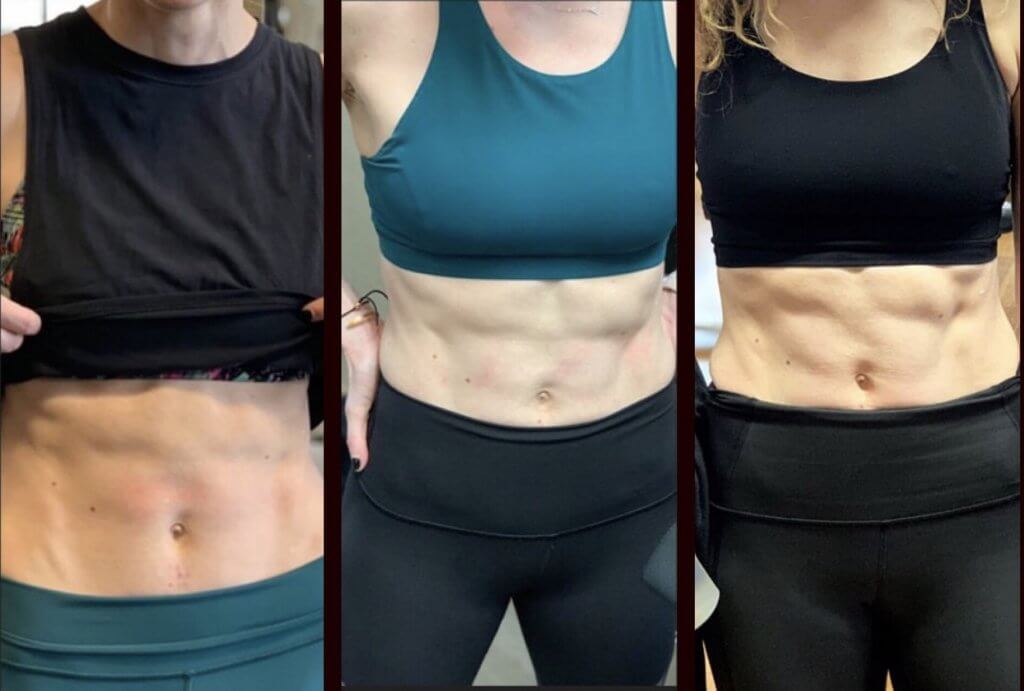The Kind of Compliment That Matters
I recently posted this picture in my Instagram story:

Over the last six months, I’ve been working on cultivating radical self-acceptance, the kind that accepts and loves me no matter what. For years I had lived by the credo, “Thin At Any Cost” and at that time in my life, acceptance was only given when the circumstances were right and the prerequisites were met. It was an ever-losing battle because nothing I did, no weight I ever got myself down to, was ever enough.
After years of hating myself, starving myself and over-exercising (and nearly killing myself in the process), I put a stake in the ground to recover in a real way, in a way I hadn’t up until this point in my life.
Up until recently, I had skirted around “recovery”. In some ways, I threw the word around like confetti. Sure, I had stop starving myself and I wasn’t over-exercising anymore (hell, half the classes I teach, I crouch down and talk to my students); but outside the superficial picture of “recovery”, behind closed doors, I was waking up hating myself, wrestling with food and eating, and mentally berating myself every step of the way. Though the specifics had changed, the torture and anguish was no different than it was years ago at the height of my battle.
Getting your shit together, requires a level of honesty you can’t even imagine.
When I chose to post the photo, I posted it for several reasons. First, it was a celebration of an area of my body that I’ve always struggled with – and still struggle with. Something I have found incredibly valuable in my journey of radical self-acceptance is forcing myself to confront the things that I don’t necessarily love. Putting up a photo of my stomach – or even wearing a crop top when I’m teaching – is a way for me to accept myself as I am in the moment, rather than “waiting” until I am “whatever enough” to rock the crop or love my body.
Second, I chose to post the progression of three weeks’ worth of pictures because I still struggle with seeing myself as I really am. Recovering from body dysmorphia literally requires you to rewire the brain and build new neural connections of what is “real”. Having the photos side-by-side allowed me to objectively see myself. I couldn’t argue that the first picture and the third were no different. Regardless of what I thought about the photos themselves, I couldn’t argue that.
Shortly after posting the picture, my inbox blew up:
“You are body goals”
“If I had abs like that…”
“You have the perfect body. Everyone wants to look like you.”
“What exercises are you doing? I want to lose weight.”
While the comments and compliments were well-intended, it threw me into a fixation on my body. There was anxiety surrounding “what’s next” and a gripping feeling of how much better the “next” photo had to be. There was the hollow sensation of feeling not-enough. There was the reminder that how I looked, what “progress” I made, was my social currency and my worth was dependent on my body – not all the things I had been through or overcome.
Everything I had been working to break down and step away from suddenly was at my front door. I literally wanted to crawl out of my skin.
Why Complimenting The Body Does More Harm Than Good
The relationships we have with our body are complex and when it comes to giving compliments about the body, flattering someone may not be helpful.
When we look at someone’s body, we’re only seeing a small part of who they are or what is happening in their life. We’re not seeing the battle they face every day with food. We’re not seeing the story they carry of not feeling good enough. We’re not seeing who the person is. We’re objectifying their body and whether we mean to or not, we’re telling them that their body is who they are.
You are not your body.
We think we mean well when we tell someone that they look good for their age, but the sentiment itself implies their age is inherently unattractive.
We think we mean well when we compliment someone on their weight loss, but the sentiment itself implies that thinner is better or more attractive.
We think we mean well when we compliment someone on their toned and defined body telling them that they’re “looking good”, some how implying that they weren’t before.
We think we mean well when we tell someone their body is “sick” or “perfect”, but maybe those words only reinforce a story that says they have to look a certain way to feel validated.
In reality there’s a lot of factors – from chronic illness to drastic life changes – that make it impossible for someone to have total control over their figure; not to mention, anyone’s body (myself included) will change throughout the day and week to week. What you see when you see someone’s body is just a snap shot of a moment and it doesn’t paint the whole picture or tell their story.
In an essay for Racked, Arianna Rebolini wrote about a salesperson telling her that she’d be the best dressed person at the event…then they assured her in a lowered voice that the dress she bought was slimming. She goes on to say that “the core of [compliments] is the same message: Your body is bad.”
“These compliments are weapons in disguise, language which, regardless of the speaker’s intent, keeps the person receiving them fixed firmly in the belief that their body, on its own, is not enough, that any beauty they have requires a qualification.”
I step back from the pictures and the comments about how insane my body is. I take a breath and I remind myself, I am not my body. While I am each of those three pictures, I am equally none of them. They only tell one part of a very complex story, a story I’m still writing.
I look at the picture and reread the comments. I take a breath and remind myself how far I’ve come. I tell myself it’s not your fault that you only see what the world tells us we need to be: defined, thin, cut, perfect. I acknowledge all the things you can’t see in the picture: the sharp and cutting comments I’ve made, the years of self-abuse, or the scars (physical and emotional).
I think about how a picture can say a thousand words and also tell you nothing about the person themselves – what they’ve been through, what they’re going through, what they think or all the other amazing things about them that have nothing to do with their body.
The Kind of Compliment That Matters
A good compliment is honest, sincere and truly for the benefit of the recipient – it’s selfless and isn’t objectifying. It comes with no particular bias and expects no particular response.
The next time you go to compliment someone, take a minute to think about what you’re really trying to say. Ask yourself if the compliment still holds true if the body isn’t involved. If it doesn’t, then the comment is probably objectifying the person and reinforcing the idea that our value lies in our appearance.
Compliments aren’t the enemy. Image-based self-worth is the enemy.
Adding Substance To What You Say
As a general rule, avoid saying anything about someone’s appearance, especially if it revolves around them looking thin, defined, young, etc. You never know someone’s story and those comments can ultimately do more harm than good.
That being said, if what you are saying is sincere and the compliment holds true beyond the body itself, you add substance to what you are saying. Rather than say, “You look awesome today”, you can add value and depth to your compliment by adding, “You have really great taste” or “You look sassy like you’re about to kick Monday’s ass.”
There’s a ton of ways to add more substance to the typical appearance-based nod. When you do this, you’re acknowledging that the person you’re complimenting matters in a lot of different ways and has space to exist beyond just the physical.
Go Beyond the Physical
We are so much more than our bodies and when we compliment beyond the physical, we celebrate the entire person.
When we can start to value people for their tenacity to work through a challenging moment; when we can thank someone for being a good listener; when we can compliment someone on their creativity or thoughtfulness, we celebrate who the person is and reaffirm that who they are is not a number on a scale or how defined their abs are.
One of the best compliments I’ve ever received, had absolutely NOTHING to do with my body. It was a card written by a woman who regularly attended my classes:
“…I wanted to tell you that your classes have made all the difference to me. A few years ago, I fell into an unhealthy pattern of disordered eating paired with over-exercising. Eventually, I quit working out altogether. This summer was my first venture back into exercise, and classes like Strike, LifeBarre and Warrior Sculpt were perfect for me. More than that, though, your messages during those classes and the frequent reminders that we are stronger than we think have helped me in ways I can’t describe. Thank you for your honesty about your life, thank you for always leading with love and encouragement, and thank you for making my summer a million times better!”
I cherish compliments like this, the ones that remind me of my purpose, not how my body is #goals. Words like this remind me I am so much more than my body. That exercise can be a vehicle for self-empowerment and not self-validation. That we are how we live our lives, not how we look for the Gram.
You are how you live your life, not how you look.
The best compliment you can give to someone is the kind that has nothing to do with their body or how they look. When you speak to someone’s tenacity, when you thank someone for always making the time to listen, when you compliment someone on who they are, who they are gets to shine a bit brighter.
This week, instead of focusing on results or appearance, where can you celebrate efforts? Instead of celebrating what you see on the outside, where can you call attention to something on the inside?
With love and gratitude for your journey and mine,
xo
